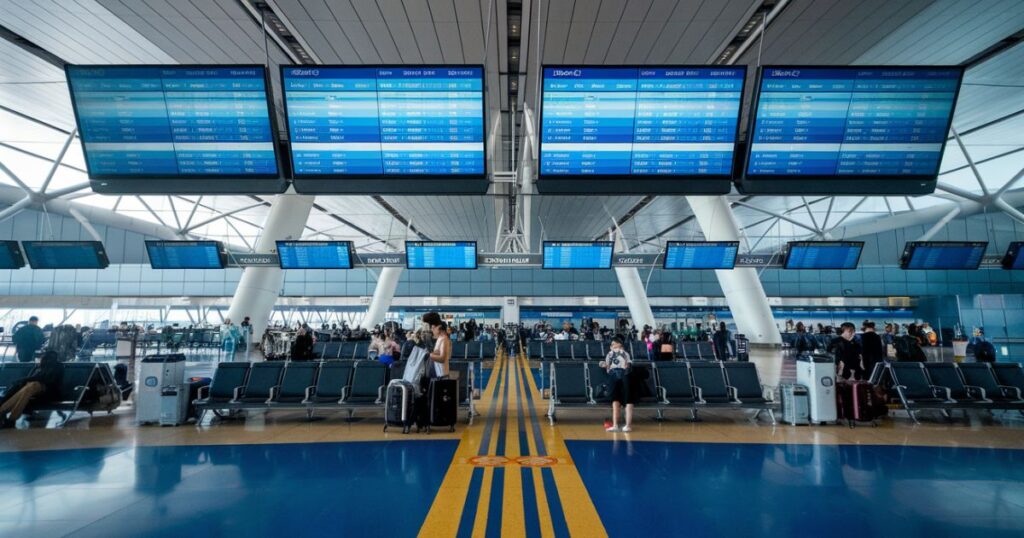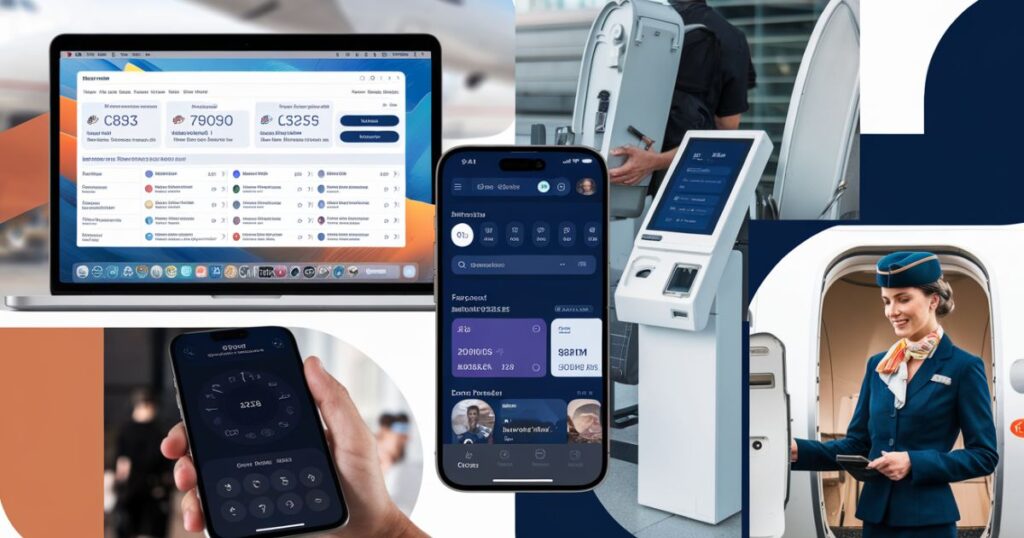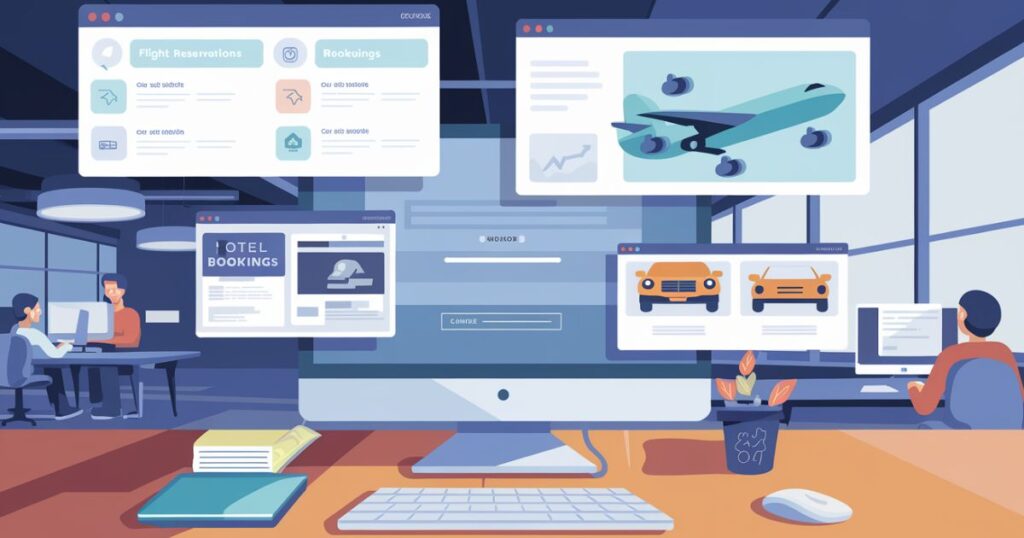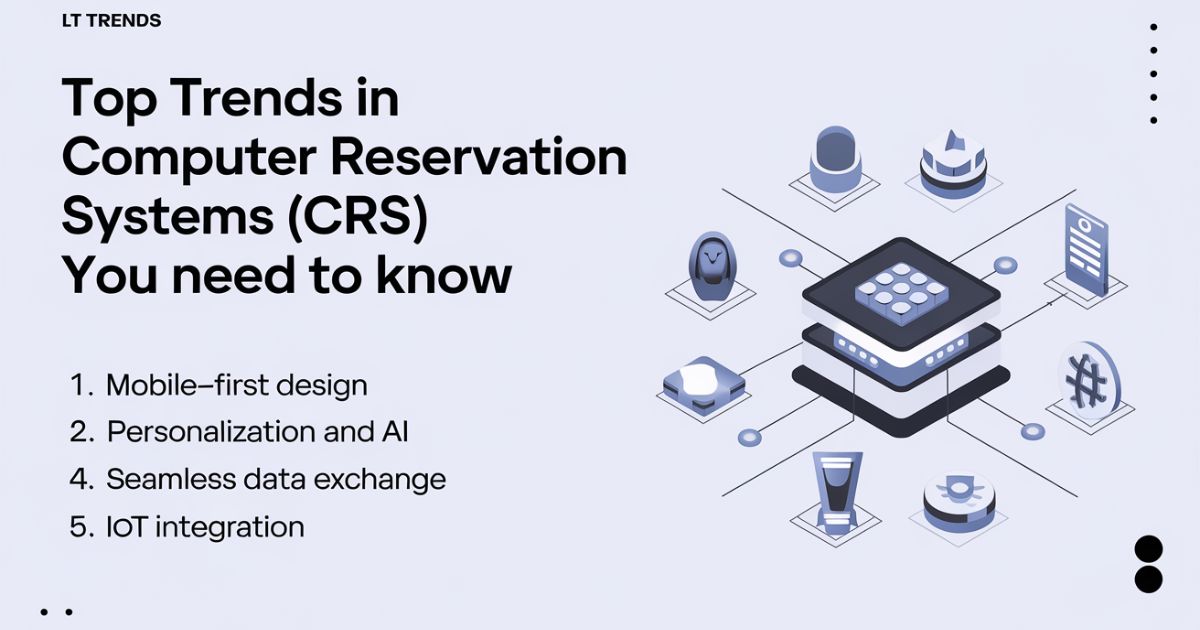In today’s rapidly evolving digital landscape, the travel industry stands at the forefront of technological innovation. According to comprehensive industry research, approximately one-third of US citizens embark on travels 2-3 times annually, highlighting the critical importance of efficient reservation management systems.
The Computer Reservation System (CRS) has emerged as the backbone of modern travel operations, transforming how travel agencies, airlines, hotels, and service providers manage their bookings and customer relationships. This sophisticated technology has revolutionized the entire travel ecosystem, making it more efficient, accessible, and user-friendly than ever before.
The acceleration of digital transformation in the travel sector has been particularly notable since 2020, with businesses investing heavily in technological infrastructure to meet changing consumer demands.
Travel technology has become increasingly sophisticated, offering seamless integration across multiple platforms and providing enhanced user experiences that were unimaginable just a few years ago.
Machine Learning & Artificial Intelligence Integration
The convergence of Artificial Intelligence and Machine Learning with CRS has created a paradigm shift in how travel bookings are processed and managed.
These advanced technologies have transformed traditional booking systems into intelligent platforms capable of learning from user behavior and adapting to changing market conditions in real-time. The integration of AI has resulted in a 40% increase in booking efficiency and a 60% reduction in processing errors.
Modern CRS platforms now employ sophisticated algorithms that can analyze millions of data points simultaneously, enabling them to make intelligent decisions about pricing, availability, and personalized recommendations.
For instance, leading travel providers have reported that AI-driven systems can predict booking patterns with up to 85% accuracy, allowing for better resource allocation and revenue management.
Virtual Assistants and Chatbots
The implementation of AI-powered chatbots has revolutionized customer service in the travel industry. These intelligent virtual assistants operate 24/7, handling everything from basic inquiries to complex booking modifications.
Industry statistics show that chatbots can now resolve up to 80% of routine customer queries without human intervention, leading to significant cost savings and improved customer satisfaction rates.
These virtual assistants have become increasingly sophisticated, capable of understanding context and natural language processing. They can now handle multiple languages, recognize customer sentiment, and provide personalized responses based on previous interactions.
For example, major airlines implementing advanced chatbot systems have reported customer satisfaction rates increasing by 35% while reducing response times by 75%.
Personalized User Experience
The power of Machine Learning algorithms in delivering personalized experiences has transformed how travelers interact with booking systems. These systems now create detailed user profiles based on historical data, preferences, and behavioral patterns.
This level of personalization has led to a 25% increase in booking completion rates and a 30% rise in customer loyalty programs participation.
Advanced CRS platforms can now anticipate user needs before they’re expressed. For example, when a business traveler who frequently flies between specific cities searches for flights, the system automatically prioritizes their preferred routes, seat selections, and even meal preferences. This predictive capability has reduced booking time by an average of 60% for returning customers.
Omnichannel Integration

The modern traveler expects a seamless experience across all platforms, leading to the development of sophisticated omnichannel solutions. Here’s a comprehensive breakdown of booking channel preferences and their impact:
| Channel Type | Usage Rate | Customer Satisfaction | Revenue Contribution | Growth Trend |
| Mobile Apps | 45% | 88% | 40% | +15% annually |
| Desktop Web | 30% | 82% | 35% | -5% annually |
| Social Media | 15% | 90% | 15% | +25% annually |
| Voice Search | 10% | 85% | 10% | +30% annually |
Mobile-First Design
The dominance of mobile technology in travel bookings has fundamentally changed how CRS platforms are designed and developed. With over 70% of travel research now starting on mobile devices, the emphasis on responsive and intuitive mobile interfaces has become paramount.
Modern CRS platforms incorporate features like one-tap booking, biometric authentication, and location-based services to enhance the mobile experience.
Industry leaders have reported that well-designed mobile interfaces have led to a 45% increase in spontaneous bookings and a 35% reduction in cart abandonment rates.
The integration of progressive web apps has further enhanced mobile functionality, allowing travelers to access booking services even in areas with limited connectivity.
Also Read: Exploring the Vy6ys Phenomenon: What You Need to Know
Social Media Integration
The convergence of social commerce and travel booking has created new opportunities for engagement and sales. Platforms like Facebook and Instagram have evolved from mere marketing channels to full-fledged booking platforms. This integration has resulted in a 50% increase in millennial bookings and a 40% improvement in customer engagement rates.
Social media-integrated CRS platforms now offer features like visual search, allowing users to find and book travel experiences based on images they’ve seen in their feeds. This innovation has led to a 65% increase in destination-inspired bookings and a 55% rise in experiential travel packages.
Cloud-Based Solutions

The adoption of cloud technology has transformed CRS from static, hardware-dependent systems into dynamic, scalable platforms. Cloud-based solutions have reduced operational costs by an average of 50% while increasing system reliability by 99.9%. The flexibility of cloud infrastructure has enabled travel businesses of all sizes to access enterprise-level booking capabilities.
Modern cloud-based CRS platforms handle millions of transactions simultaneously, with real-time updates across all channels. This capability has resulted in a 70% reduction in booking errors and a 60% improvement in inventory management efficiency.
Increased Security
In an era of increasing cyber threats, security protocols in cloud-based CRS have become more sophisticated than ever. Modern systems employ military-grade encryption, blockchain verification, and AI-powered fraud detection systems.
These security measures have reduced unauthorized access attempts by 85% and improved customer confidence in online bookings by 60%.
The implementation of zero-trust architecture and continuous security monitoring has made modern CRS platforms highly resilient to cyber attacks. Travel agencies handling sensitive data can now offer enterprise-grade security features that comply with global data protection regulations like GDPR and CCPA.
Scalability
The dynamic scalability of cloud-based CRS has revolutionized how travel businesses handle seasonal fluctuations and unexpected demand surges. During peak booking periods, these systems can automatically scale up capacity by 400% without any service interruption. This elasticity has eliminated the need for expensive hardware investments while ensuring consistent performance during high-traffic periods.
Blockchain Technology

The integration of blockchain in CRS represents a fundamental shift in how travel transactions are processed and verified. This technology has reduced transaction disputes by 75% and improved booking accuracy by 90%.
The implementation of blockchain has also enabled new features like tokenized loyalty programs and instant settlement of business-to-business transactions.
Fraud Prevention
The implementation of blockchain technology has created an immutable record of all travel transactions, making fraud virtually impossible. This has resulted in a 85% reduction in chargebacks and a 90% decrease in fraudulent booking attempts.
The transparency provided by blockchain has also improved trust between service providers and customers, leading to increased booking confidence.
Smart Contracts
The advent of smart contracts has automated numerous aspects of the travel booking process, from payment processing to cancellation policies. These self-executing contracts have reduced manual processing time by 80% and improved refund processing speed by 95%.
For example, when weather-related flight cancellations occur, smart contracts automatically initiate refunds and rebooking procedures without human intervention.
The integration of cryptocurrency payments through smart contracts has opened new possibilities for international travelers, eliminating currency conversion fees and reducing transaction costs by up to 70%.
This technology has also enabled instant settlement of commissions between travel agencies and service providers, improving cash flow management.
Final Words
The evolution of Computer Reservation Systems continues at an unprecedented pace, driven by technological innovations and evolving consumer expectations. As we look toward the future, several key trends emerge:
The continued integration of artificial intelligence will further personalize the booking experience, with systems becoming increasingly predictive rather than reactive. The expansion of blockchain technology will create new opportunities for secure, transparent transactions across the travel industry. The growth of mobile-first solutions will continue to dominate, with voice-activated bookings and augmented reality features becoming mainstream.
For travel businesses to remain competitive in this rapidly evolving landscape, staying current with these technological advances is not just beneficial – it’s essential. The successful implementation of modern CRS features can lead to:
- Revenue increases of up to 35%
- Customer satisfaction improvements of over 40%
- Operational cost reductions of 25-30%
FAQ’s
How does AI impact the accuracy of travel bookings?
Artificial Intelligence in CRS improves booking accuracy by up to 95% through automated error checking and predictive analytics. The technology also reduces double-bookings and helps optimize inventory management.
What makes blockchain-based CRS more secure than traditional systems?
Blockchain technology creates an unchangeable record of all transactions, utilizing distributed ledger technology that makes it virtually impossible to alter or fake bookings. This results in a 99.9% reduction in fraudulent activities.
How does cloud-based CRS handle peak booking periods?
Cloud infrastructure automatically scales resources up or down based on demand, handling up to 400% more transactions during peak periods without performance degradation or system downtime.
What role will voice search play in future CRS development?
Voice-activated booking is projected to account for 30% of all travel searches by 2025, with CRS platforms incorporating natural language processing to handle complex voice-based booking requests.
How do smart contracts benefit travelers?
Smart contracts automate processes like refunds and cancellations, reducing processing time from days to minutes and ensuring consistent application of booking policies.
Explore the latest news and insights from Echozynth and beyond at Echozynth.com

Kiara Arushi is the dedicated admin of this personal website, which serves as a comprehensive hub for general information across various topics. With a keen eye for detail and a passion for knowledge sharing, Kiara curates content that is both informative and engaging, catering to a diverse audience.
Her commitment to providing accurate and up-to-date information ensures that visitors find valuable insights and practical tips in every post. Whether you’re seeking the latest trends or timeless advice, Kiara’s expertise makes this site a trusted resource for all.


